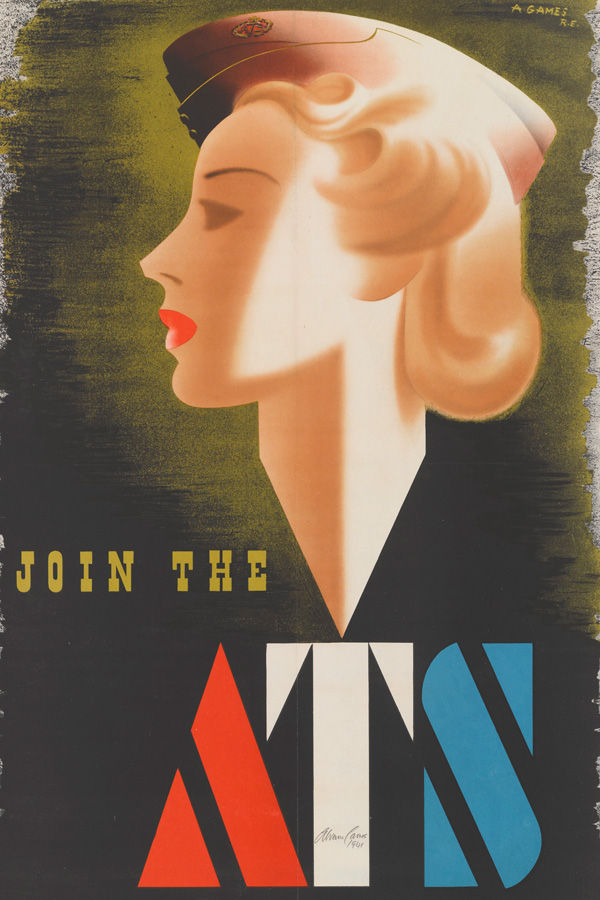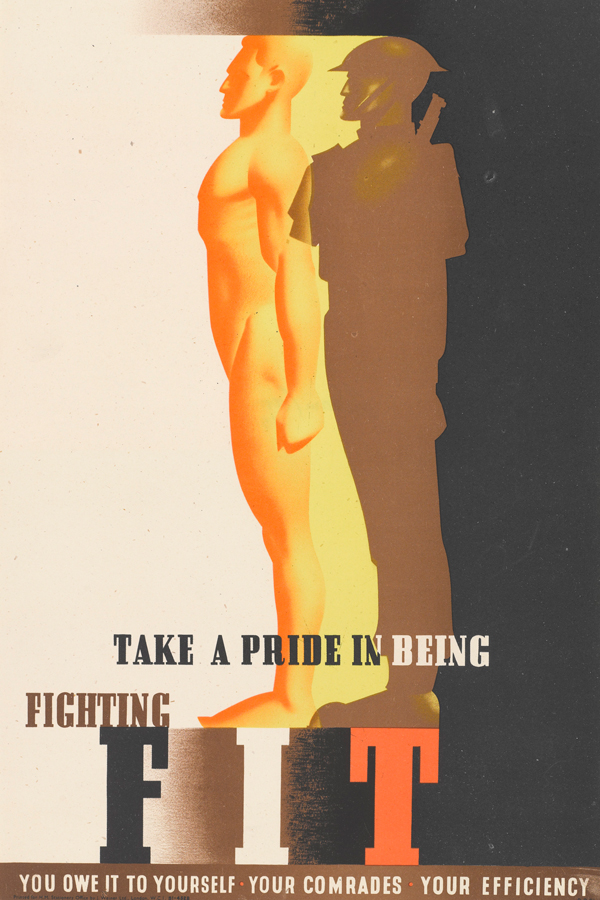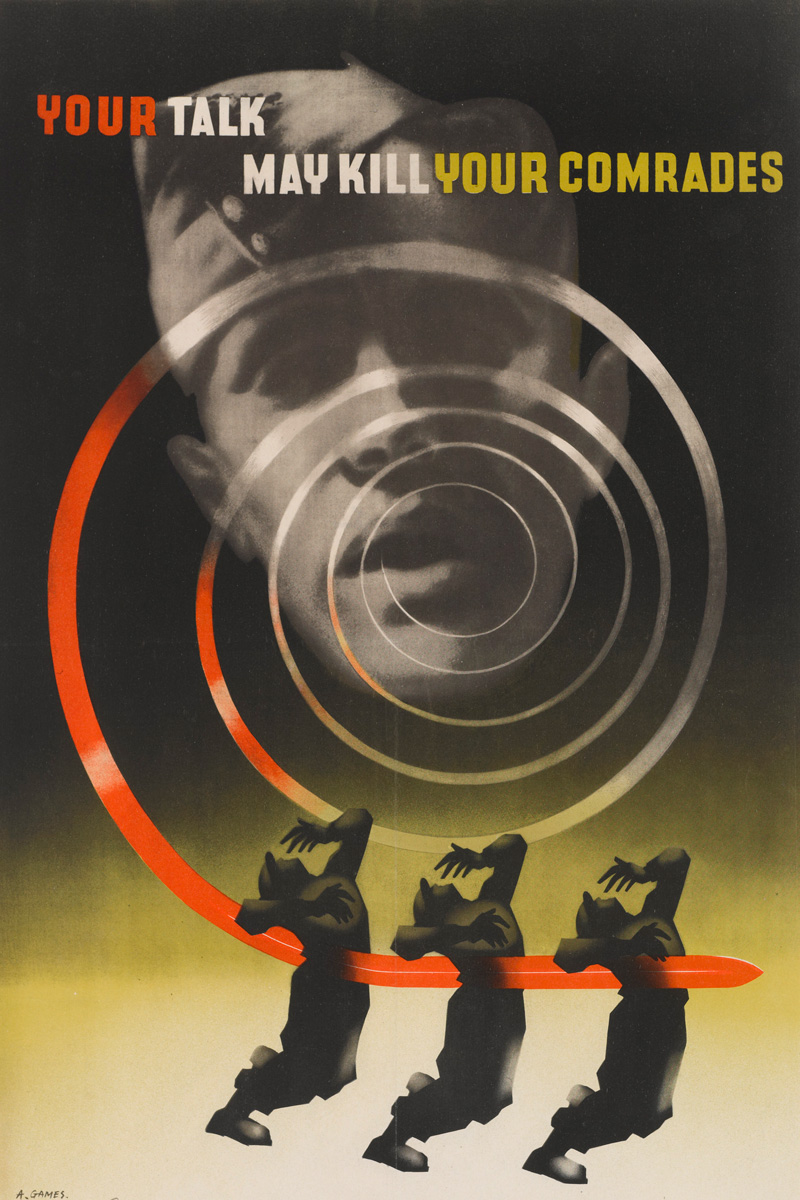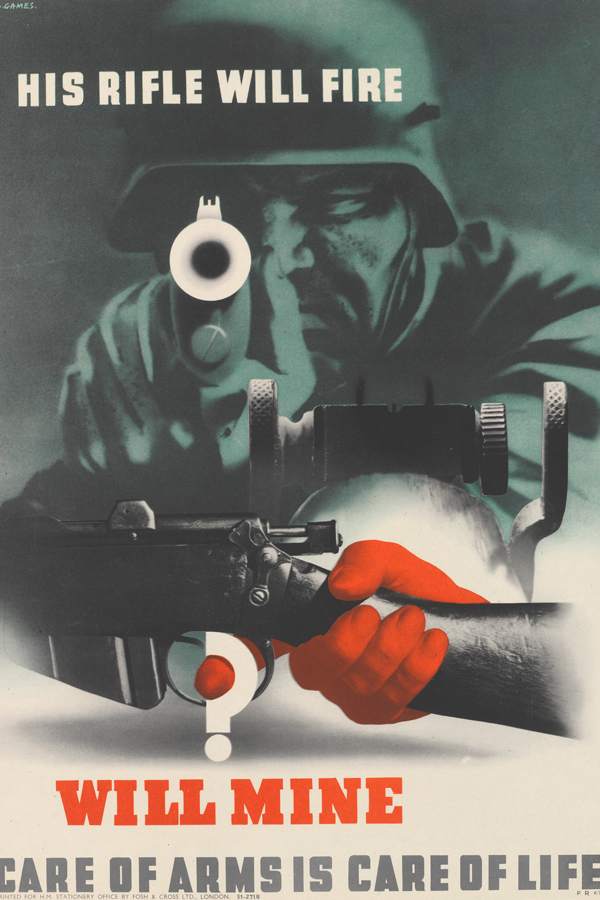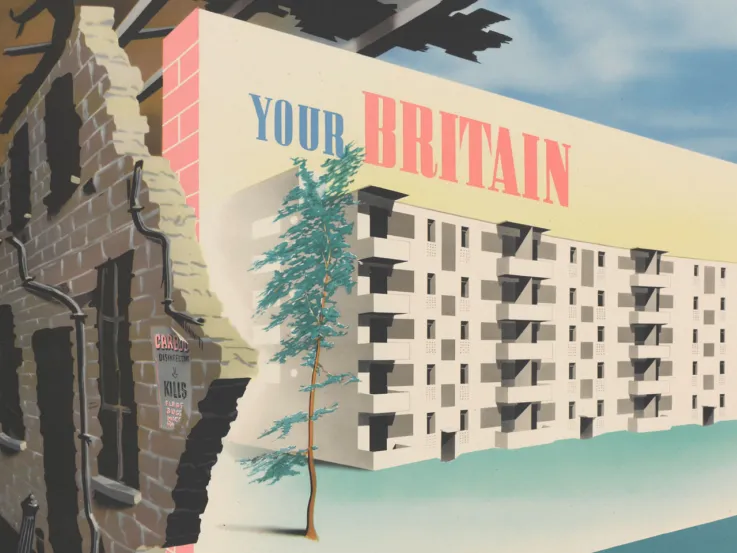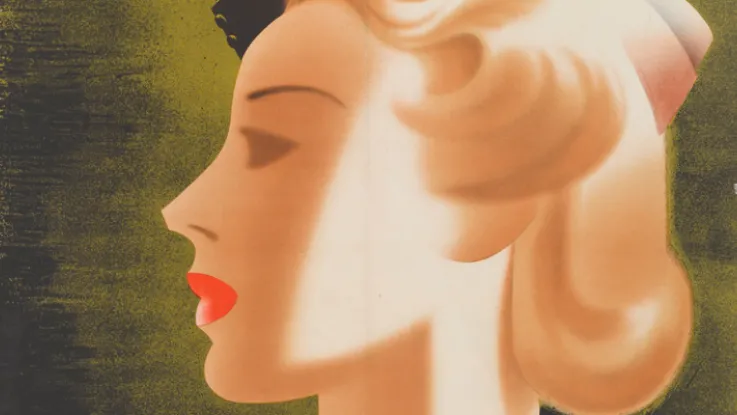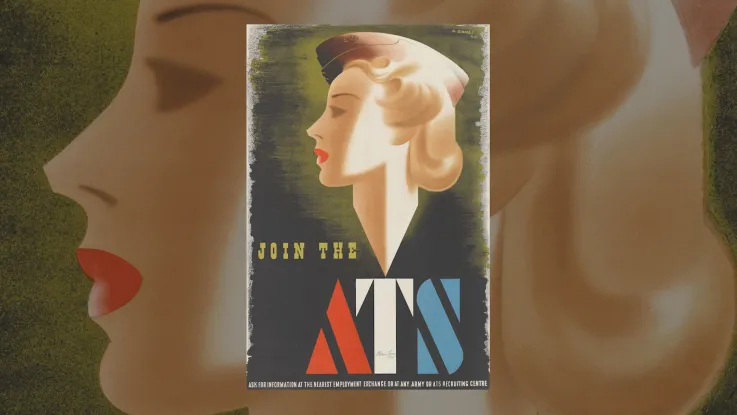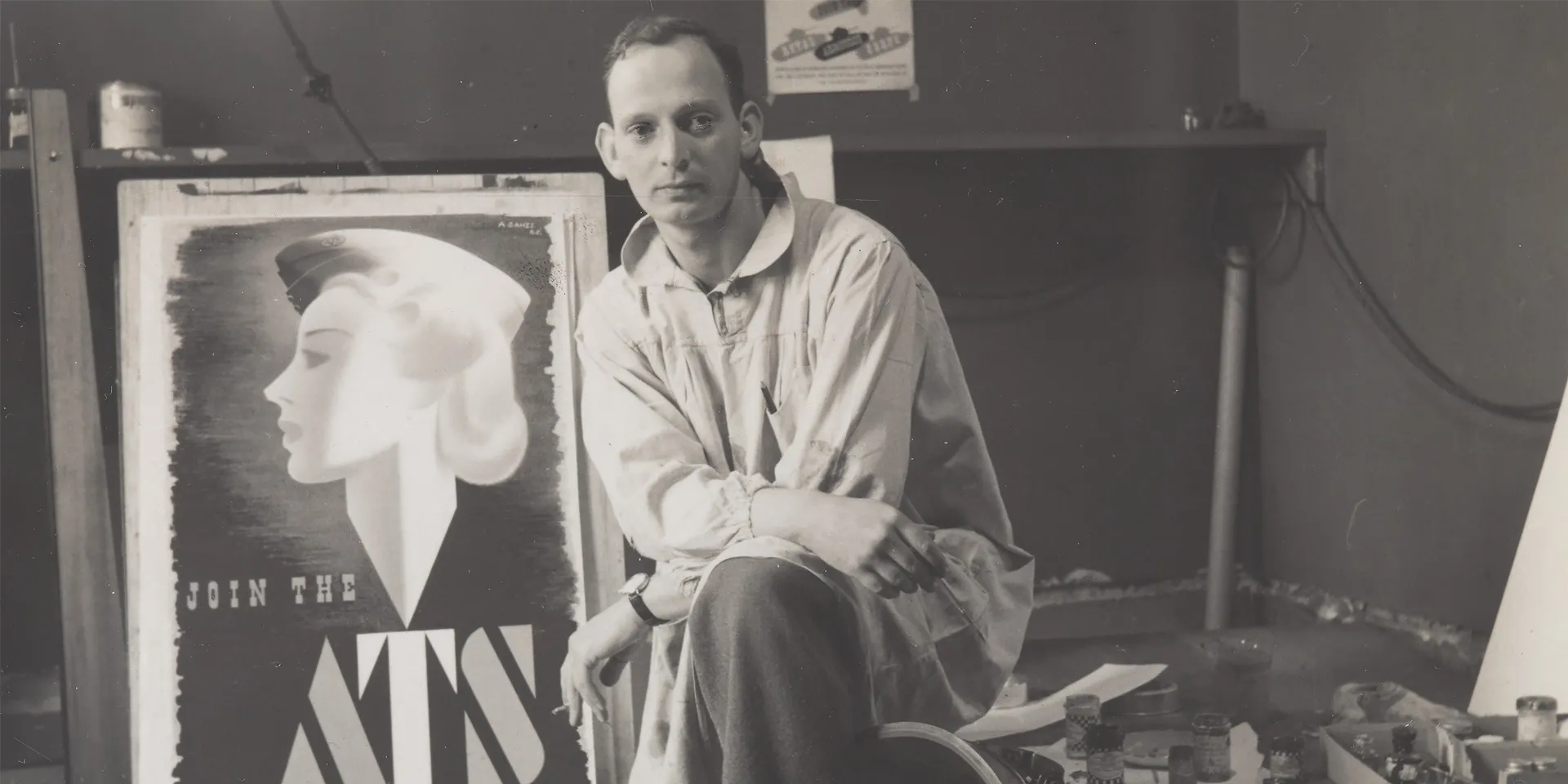
Abram Games in his studio, c1941 (Lent by the Estate of Abram Games)
Early life
Abram Games (1914-96) was born in the East End of London on the eve of the First World War (1914-18). He was the son of Jewish refugees, who had emigrated to Britain from different regions of the Russian Empire at the turn of the century.
His father, Joseph, worked as a photographer and introduced Abram to creative design processes at an early age. Joseph's use of the airbrush to retouch his photographs sowed the seeds for Abram's later mastery of this tool. Throughout his career, Abram continued to use the original airbrush handed down to him by his father.
Pre-war career
Largely self-taught, Abram had established himself as a designer and poster artist by the end of the 1930s. He was awarded commissions by organisations such as London Transport, Shell, the Co-operative Building Society and the General Post Office, all in a freelance capacity.
Abram had also become a staunch socialist. His work during this period included posters aimed at helping refugees from the Spanish Civil War (1936-39). These were produced free of charge for the National Joint Committee for Spanish Relief. He would later insist that he preferred 'working for causes and ideas rather than for selling goods'.
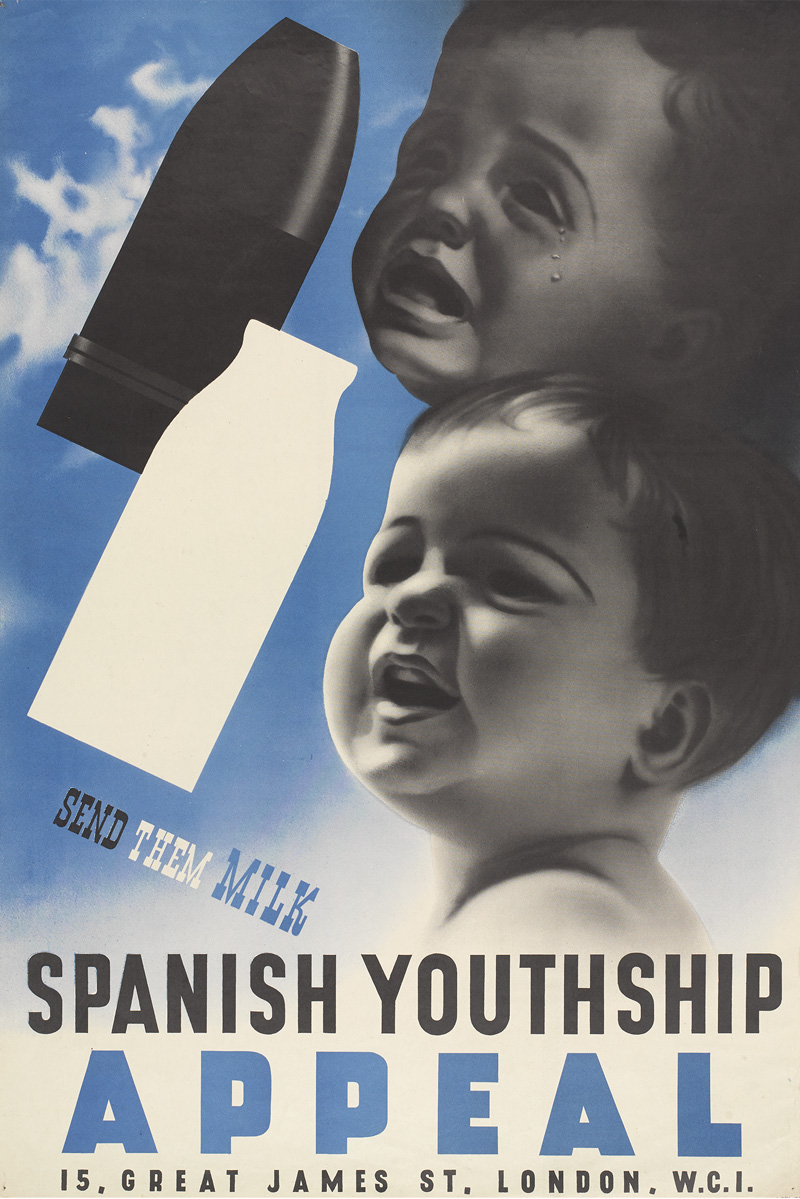
Poster for the National Joint Committee for Spanish Relief by Abram Games, 1939 (Lent by the Estate of Abram Games)
29 July 1914
Abraham Gamse is born in Whitechapel, the son of Joseph Gamse, a photographer from Latvia, and Sarah Rosenberg, a seamstress from Poland.
1925-29
Abraham attends Hackney Downs School, London.
February 1926
Joseph Gamse changes his family’s surname to Games. Around this time, Abraham also changes his name to Abram, joking that he is dropping the ‘ham’ because it's not kosher!
1930
Abram is a student at St Martin’s School of Art, London. But after two terms, he switches to evening classes only. He also works as an assistant in his father’s photographic studio.
1932-36
Abram is a studio boy at commercial art studio Askew Younge, London. He continues to attend life-drawing classes four nights a week.
1935
Abram wins second prize in a competition organised by the Health and Cleanliness Council for his poster ‘Where There’s Dirt, There’s Danger’.
1936
Abram wins first prize of £20 in London County Council Evening Class poster competition, but is dismissed from Askew Younge for his ‘independent views’. He unsuccessfully places a portfolio of work with the artists’ agents Harding and Giles.
1937
'Art and Industry' publishes an article on Games’s work. Poster commissions follow.
1939
Games designs two posters for the National Joint Committee for Spanish Relief in aid of Republican refugees fleeing persecution during the Spanish Civil War (1936-39).
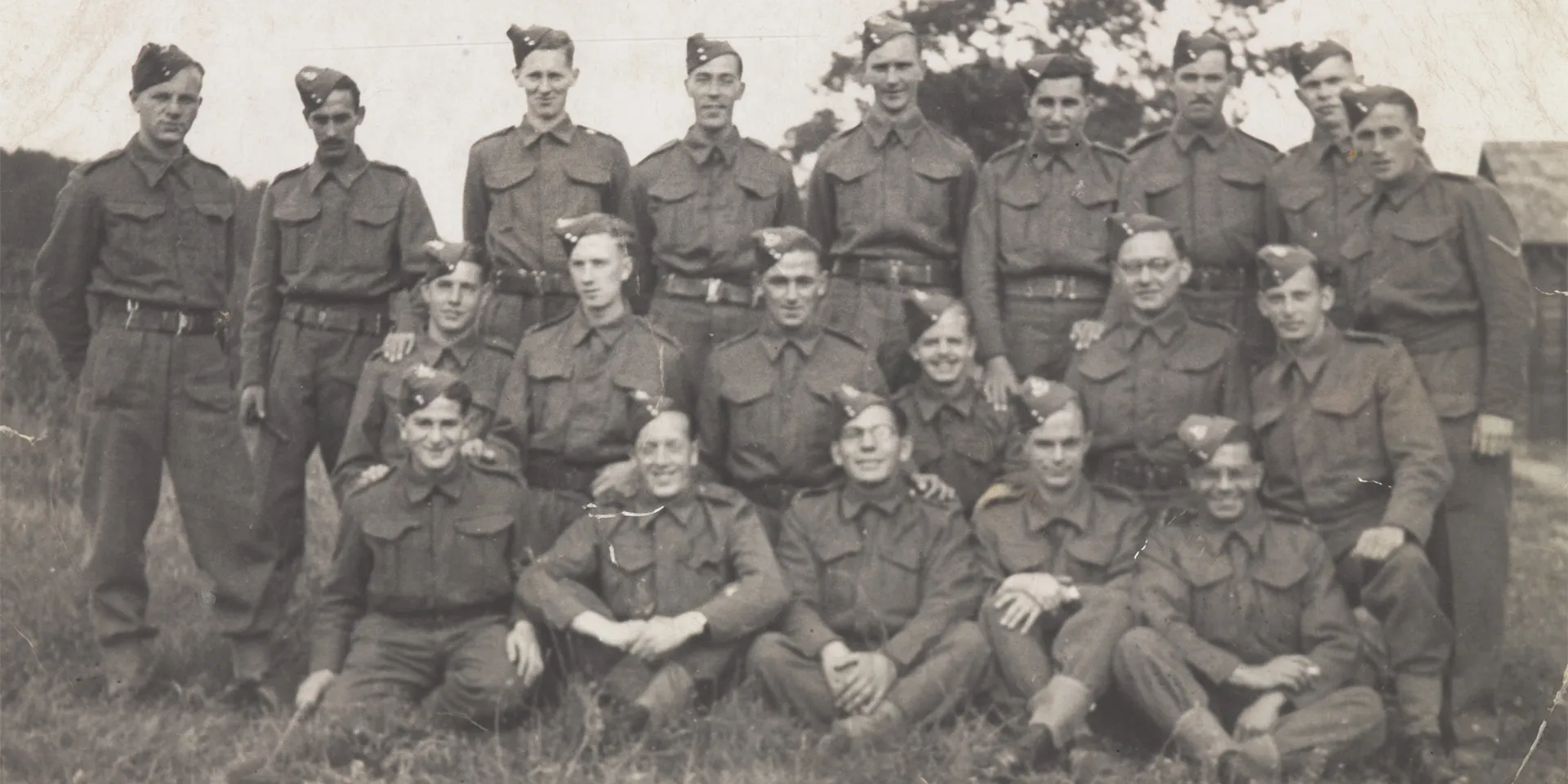
Private Abram Games (seated far right of middle row) with soldiers of The Royal Warwickshire Regiment, 1940 (Lent by the Estate of Abram Games)
War
Games was conscripted into The Royal Warwickshire Regiment in June 1940, nine months after the outbreak of the Second World War (1939-45). He transferred to the War Office Public Relations Directorate in 1941 to design posters for the Army.
Inspired by his Jewish heritage and a love of his country, and informed by his socialist ideals and his first-hand experiences as a soldier, Abram used his art to make an important contribution to the war effort.
Posters
Posters had been an essential means of inspiring patriotism and recruiting men and women in the First World War. Games's wartime work continued to serve this purpose, but was also used to instil desirable habits and behaviour in soldiers and civilians alike.
Among other things, his posters encouraged people to avoid waste, give blood, buy war bonds, handle weapons and ammunition properly, avoid gossip and maintain fighting fitness.
As 'Official War Poster Artist', Games created over 100 designs. Always keen to derive maximum meaning from minimum means, his use of clever symbolic devices and simplified forms resulted in some of the most arresting and powerful posters of the era.
1 September 1939
Germany invades Poland. Britain and France declare war on Germany two days later.
June 1940
Games is called up to the Army. After serving as a private in The Royal Warwickshire Regiment for four months, he is transferred to The Hertfordshire Regiment.
January 1941
Games serves as a draughtsman in 54th Division Head Quarters, Moreton-in-Marsh, Gloucestershire.
June 1941
Games is posted to the War Office, promoted corporal and classified as a draughtsman in the Royal Engineers. He designs a poster for the recently formed Royal Armoured Corps.
July 1941
The Army Bureau of Current Affairs (ABCA) is set up to raise morale and educate soldiers about the war. Games later designs a series of controversial ABCA posters entitled ‘Your Britain, Fight for It Now’ advocating social and political change.
August 1941
The first of Games’s posters warning soldiers about careless talk is published. He also designs posters reminding soldiers to maintain high standards of hygiene.
December 1941
Single women are conscripted into war work. To encourage women to join the Auxiliary Territorial Service (ATS), Games designs his controversial ‘blonde bombshell’ poster.
1942
Games produces the first of several recruiting posters for the airborne forces. He also begins a series educating soldiers on the safe handling of ordnance and weapons.
August 1942
Games is promoted second lieutenant. He designs posters calling on soldiers to take pride in being ‘fighting fit’.
November 1942
Games is promoted lieutenant and becomes 'Official War Poster Artist', a title never before or since claimed by any other artist.
December 1942
The Beveridge Report is published. The blueprint for the British welfare state, it proposes a system of national security to be implemented after the war.
1943
The Jewish Committee for Relief Abroad establishes a service section, ‘The Jewish Relief Unit’. Games becomes an active member.
1944
Games designs his first poster for the Army Education Scheme. This offers careers guidance and training to help prepare soldiers for the transition to civilian life.
15 April 1945
The Allies liberate Bergen-Belsen concentration camp in Germany. Games sees the shocking film footage and is moved to make posters on behalf of displaced Holocaust survivors.
May 1945
Games is promoted captain as his work has ‘established itself as a valuable contribution to the Army system of training and education’.
8 May 1945
Victory in Europe (VE) Day sees the Allies accept the unconditional surrender of Nazi Germany.
July 1945
Clement Attlee’s Labour Party wins a landslide victory in the general election. Right-wing critics later accuse ABCA of indoctrinating soldiers to vote Labour.
2 September 1945
Japan formally surrenders and the Second World War ends.
Post-war career
Games continued to produce posters for the Army and for Jewish relief agencies after the war. He was demobilised in 1946 and resumed his freelance career, designing film posters, book covers, postage stamps and corporate advertising.
His post-war clients included major brands like London Transport, 'The Financial Times', British European Airways and Guinness. But it was the emblem he designed for the Festival of Britain that sealed his reputation as one of the 20th century's most iconic designers.
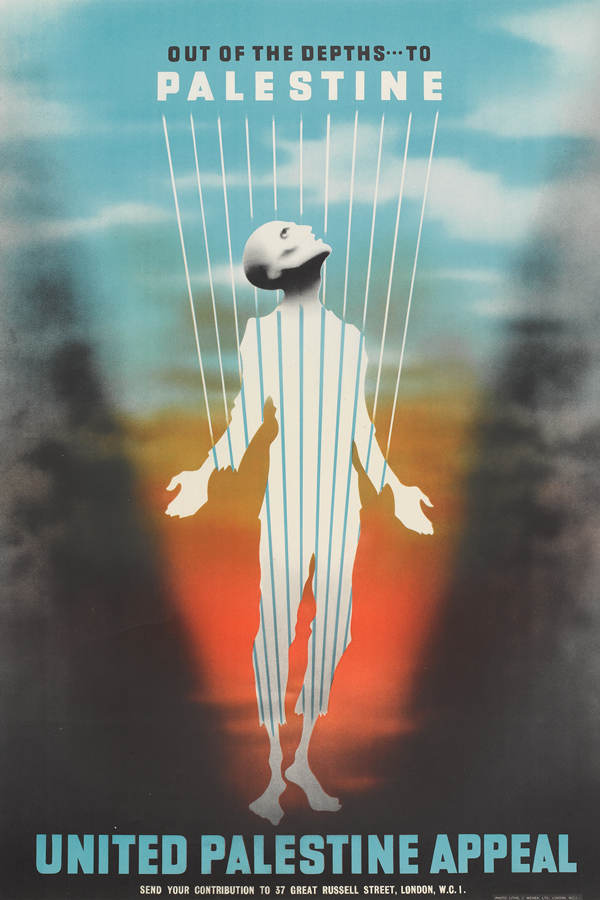
'Out of the Depths to Palestine' poster by Abram Games, 1945 (Lent by the Estate of Abram Games)
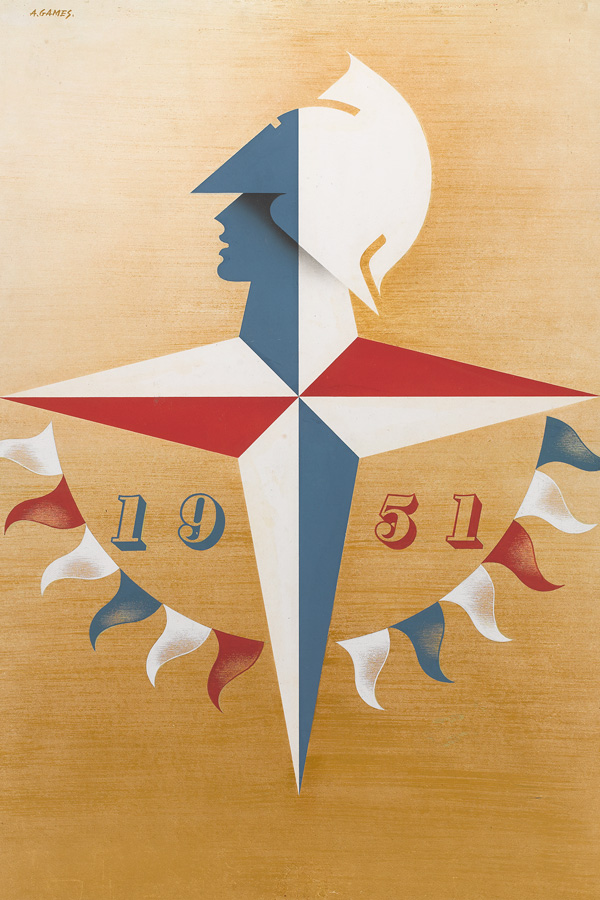
Original artwork for Games's Festival of Britain emblem, 1948 (Lent by the Estate of Abram Games)
1945
A passionate Zionist, Games produces a poster supporting the foundation of a Jewish state in Palestine for victims of the Holocaust.
October 1945
Abram Games marries Marianne Salfeld.
1946
Games is demobilised and resumes his freelance design career. He visits Brussels to see his exhibition at the Palais des Beaux-Arts.
1946-53
Games works as a visiting lecturer in Graphic Design at the Royal College of Art, London.
1947
Games designs a stamp for the 1948 London Olympics. This earns him the nickname 'Olympic Games'.
1948
Games wins first prize in the Festival of Britain emblem competition. The festival is a nationwide celebration of British industry and designed as a post-war ‘tonic for the nation’.
1953
Games designs BBC Television’s first animated ident.
1956-57
Games is appointed Art Director of colour covers for Penguin Books.
1957
Games is awarded an OBE for services to graphic design.
1959
Games is appointed Royal Designer for Industry, and is a speaker at the Ninth International Design Conference, Aspen, Colorado, USA. He also designs a coffee maker for Cona Coffee and patents an imagic photocopier.
1962
Games presents a paper, ‘The Poster in Modern Advertising’, to the Royal Society of Arts (RSA). He also wins the RSA Silver Medal.
1965
Games designs a memorial window to the victims of the Holocaust for Muswell Hill Synagogue, London.
1965-67
Games is made a member of the Stamp Advisory Committee, which advises on the design of British postage stamps.
1968
Games is appointed the United Nations Industrial Development Organisation Consultant on Graphic Design at Bezalel School of Art, Israel.
1970
Games designs the ‘Stockwell Swan’ tile mural for London Transport’s Victoria Line.
1992
Games is made an Honorary Fellow of the Royal College of Art.
27 August 1996
Abram Games dies. He is buried in the Bushey Jewish Cemetery, Hertfordshire.
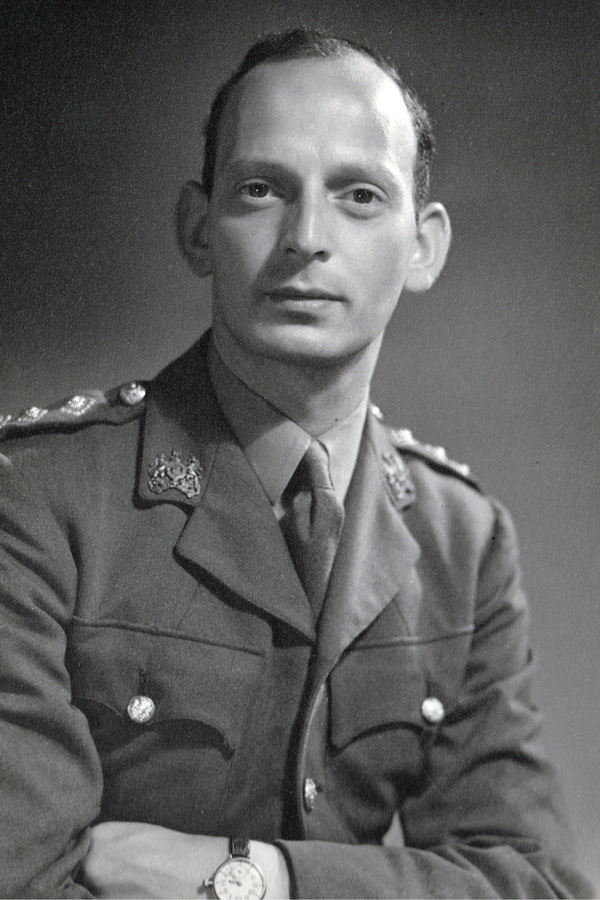
Captain Abram Games, c1945 (Lent by the Estate of Abram Games)
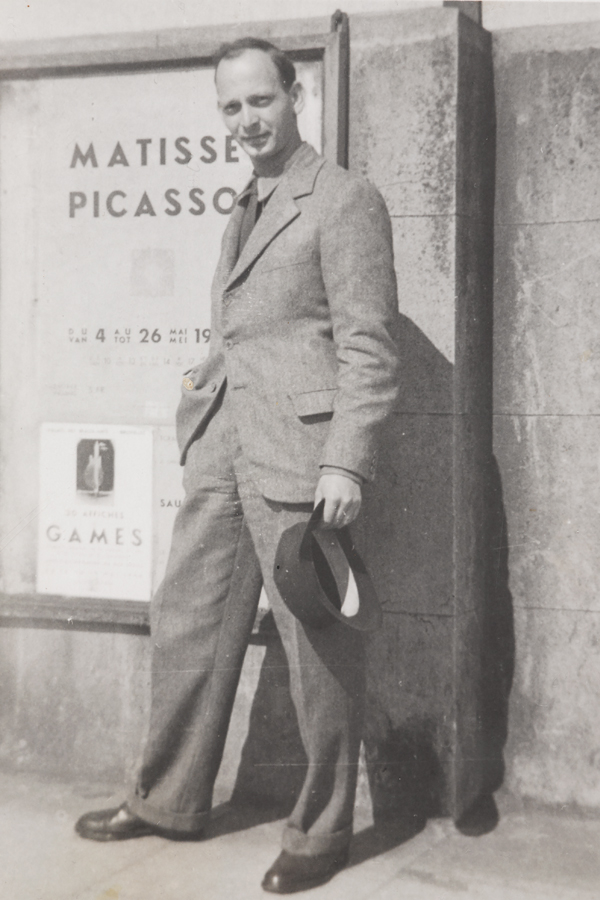
Abram Games at the Palais des Beaux-Arts, Brussels, 1946 (Lent by the Estate of Abram Games)

